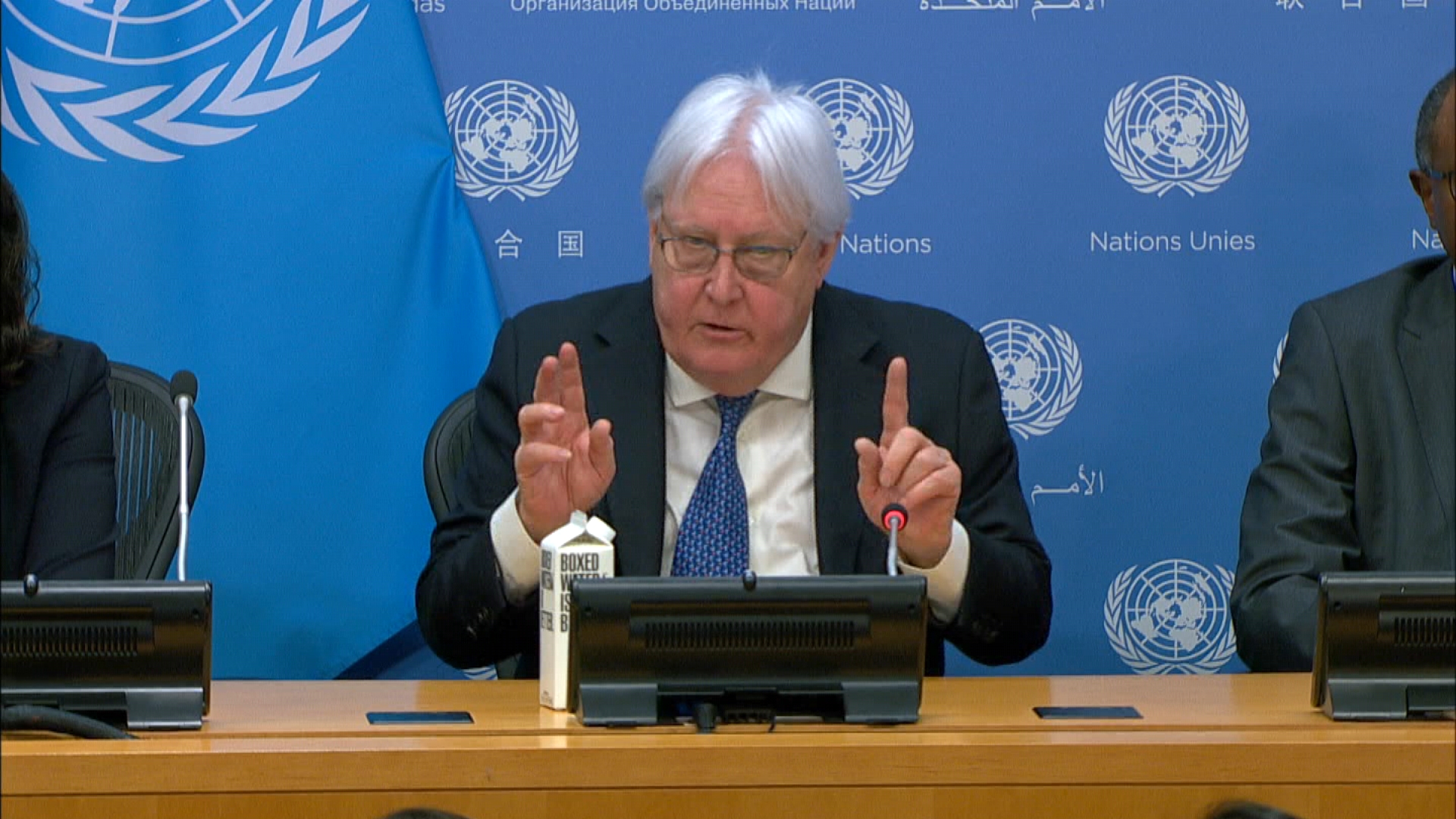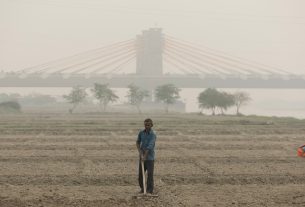TRT: 02:35
SOURCE: UNIFEED
RESTRICTIONS: NONE
LANGUAGES: ENGLISH / NATS
DATELINE: 30 JANUARY 2023, NEW YORK CITY / FILE
SHOTLIST:
FILE – NEW YORK CITY
1. WIDE SHOT, EXTERIOR UN HEADQUARTERS
30 JANUARY 2023, NEW YORK CITY
2. Wide shot, press room dais
3. Wide shot, journalists
4. SOUNDBITE (English) Martin Griffiths, Under-Secretary-General for Humanitarian Affairs and Emergency Relief Coordinator:
“We were told the guidelines are being developed by the Taliban authorities and which would provide – allegedly -the role, the functioning, of women in humanitarian operation.”
5. Wide shot, journalists
6. SOUNDBITE (English) Martin Griffiths, Under-Secretary-General for Humanitarian Affairs and Emergency Relief Coordinator:
“Let’s see if these guidelines do come through. Let’s see if they are beneficial. Let’s see what space there is for the essential and central role of women in our humanitarian operations.”
7. Wide shot, journalists
8. SOUNDBITE (English) Martin Griffiths, Under-Secretary-General for Humanitarian Affairs and Emergency Relief Coordinator:
“Women are central essential workers in the humanitarian sector – in addition to having rights – and we need to see them back to work.”
9. Wide shot, press room dais
10. SOUNDBITE (English) Sofia Sprechmann Sineiro, Secretary General, Care International:
“Let there be no ambiguity, tying the hands of NGOs, by barring women from giving lifesaving support to other women, will cost lives. We are insisting on the repeal of the edict and – as Martin said – we are also seeking additional authorizations or exemptions for other sectors so that NGOs, both local and international, can continue their life-saving work in ways that do not discriminate.”
11. Wide shot, press room dais
12. SOUNDBITE (English) Omar Abdi, Deputy Executive, Director for Programs, United Nations Children’s Fund (UNICEF):
“The numbers are alarming. More than 1 million girls who should have been in secondary schools have lost out on learning for three years now. First due to COVID, and then since September 2021, due to the ban on attending secondary school.”
13. Med shot, journalists
14. SOUNDBITE (English) Janti Soeripto, President and CEO, Save the Children, United States:
“These exemptions, these authorizations, also need to be reliable and dependable. So, even when they were granted nationally, sometimes in certain provinces or even certain districts, women were still prevented from going back because the local authorities hadn’t either got the message or didn’t agree. So, it is a constant effort of our staff there to make sure these exemptions are reliable and also that it’s safe for our female staff to go back.”
15. Wide shot, end of presser
STORYLINE:
Commenting on guidelines expected to be issued by Taliban authorities to allow women to work in humanitarian operations in Afghanistan, the United Nations top humanitarian official today (30 Jan) said “Let’s see if these guidelines do come through. Let’s see if they are beneficial. Let’s see what space there is for the essential and central role of women in our humanitarian operations.”
Under-Secretary-General for Humanitarian Affairs and Emergency Relief Coordinator Martin Griffiths, talking to journalists in New York during a joint press conference, said, “women are central essential workers in the humanitarian sector – in addition to having rights – and we need to see them back to work.”
Joining via video teleconference from Kabul, Care International’s Secretary General Sofia Sprechmann Sineiro said, “let there be no ambiguity, tying the hands of NGOs, by barring women from giving lifesaving support to other women, will cost lives.”
Noting that the Taliban has granted exemptions to health and education related activities, Sprechmann Sineiro said, “we are also seeking additional authorizations or exemptions for other sectors so that NGOs, both local and international, can continue their life-saving work in ways that do not discriminate.”
UNICEF’s Director for Programs Omar Abdi said, “the numbers are alarming. More than one million girls who should have been in secondary schools have lost out on learning for three years now. First due to COVID, and then since September 2021, due to the ban on attending secondary school.”
For her part, the President and CEO of Save the Children, United States, Janti Soeripto, said, “these exemptions, these authorizations, also need to be reliable and dependable. So, even when they were granted nationally, sometimes in certain provinces or even certain districts, women were still prevented from going back because the local authorities hadn’t either got the message or didn’t agree. So, it is a constant effort of our staff there to make sure these exemptions are reliable and also that it’s safe for our female staff to go back.”
Afghanistan is facing an unprecedented humanitarian crisis with a very real risk of systemic collapse and human catastrophe. In addition to human costs, this humanitarian crisis is reversing many of the gains of the last 20 years, including around women’s rights.



